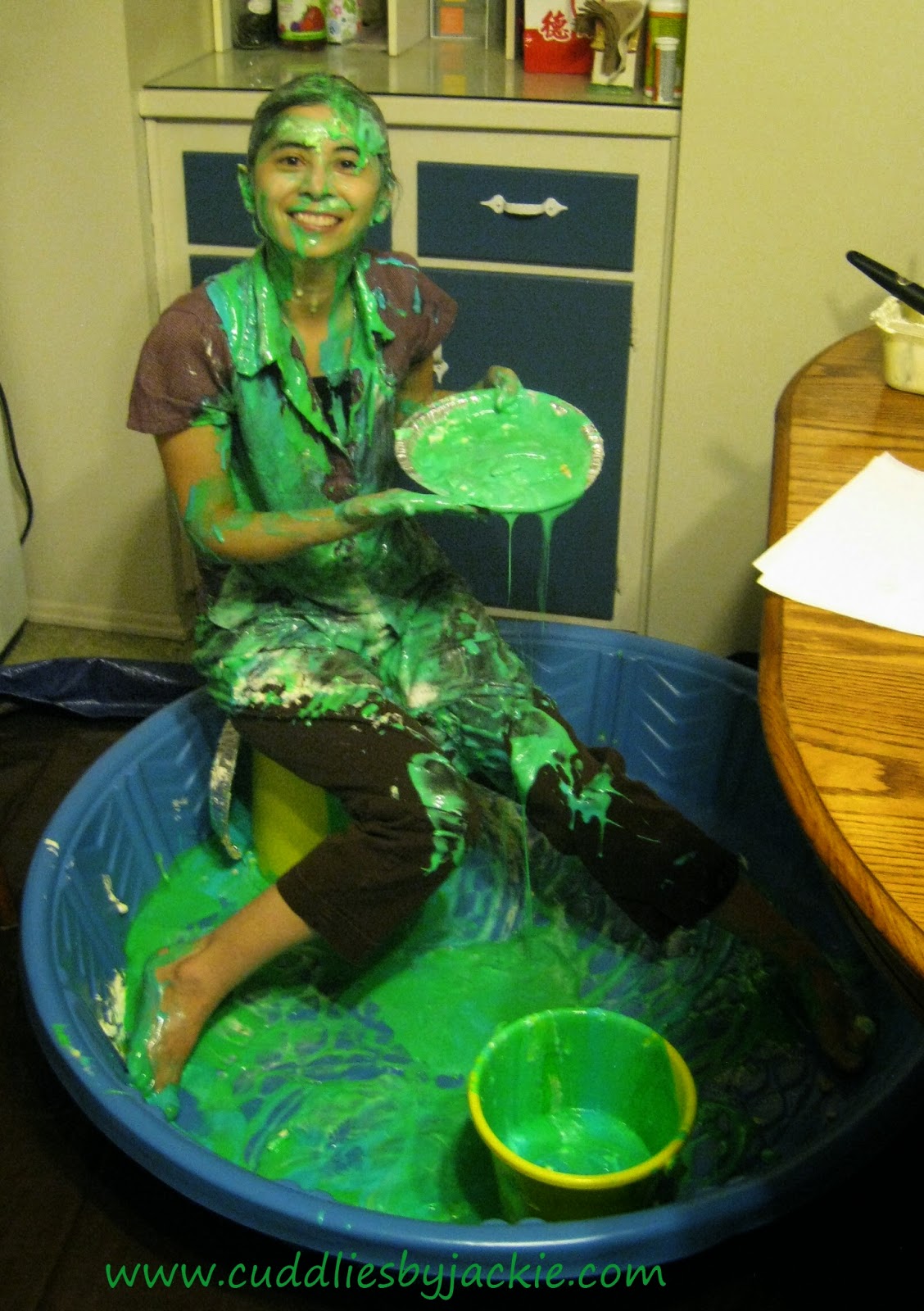(Or, "Advice I’ve gleaned from fellow Bloggers, NaNoWriMo-ers,
and ROW80-ers")
- Set small, specific goals.
It’s easy to get discouraged or overwhelmed if you have a
huge goal that you are consistently not meeting. And how can you meet it, anyway, if it’s so
undefined? I find that I shy away from
the huge responsibilities like “write a novel,” or “clean the house,” or “clear
out your closets.” But I’m more likely
to actually do something if it’s a tangible, focused goal. The trick seems to be to focus on precise,
quantifiable goals, rather than end-products.
Well-defined steps might actually happen, because they are smaller, more tangible
tasks that won’t take hours and hours to address. Tasks that constantly loom over me are huge
and scary and vague and are to be avoided at all costs.
Small goals that only take 15-30 minutes are automatically less
threatening, especially if they’re something that you have to get to but don’t
anticipate enjoying. But I’m
theoretically supposed to want to write, right?
And 1,667 words a day, while more than I usually write in one sitting,
sounds like much less than 50,000 words in a month, right?
I wrote a long post Saturday night, and then I stayed up late,
and I was sooo tired. It was soooo hard
to envision a whole month of writing. Even
1,667 words seemed like way too much of a hassle. But if I look at things through a microscope,
I do actually want to update my photo gallery, and write about neat things I’ve
discovered on the internet, and I want to share my latest cute plushie ideas
and my Jane Austen costume--they're fun, and I'm proud of them! And that
leads us to:
- Look at things from a different perspective.
We all signed up to do something crazy like NaNoWriMo or
DigiWriMo because we technically WANT to write, correct? Some idea was so inspiring, or fun, or we
just wanted to overcome the fear, or we wanted to connect to other creative
people. Last year, people from all over
the world contributed to a single novel during DigiWriMo! What a neat, collaborative, creative, technology-inspired
idea! So why can NaNoWriMo just feel
like a guilt-tripping, overwhelming amount of WORK?
Personal Example: Decluttering
I am not a hoarder, but I do put way too much emotional
meaning into belongings, and it is hard for me to let anything go. Plus, I might NEED things like extra Q-tips
or pretty ribbon, right? But as I stated
in my Sunday post, this last spring I got rid of over 30 bags of belongings. How did I do it? Well, to begin with, I knew I was
moving. And the stress of lugging boxes,
and punishing other, helpful people by having them lug them for me, can automatically
make things less precious (although I still moved plenty--thanks, again!).
Secondly, I tried to subscribe to the “$20 or less
rule.” If it costs less than $20, and
it’s easily replaceable and has no sentimental value, and you won’t need it for
months, then it’s not worth the financial and mental effort of packing and
storing and moving. Why keep packing and
moving scented soap and tiny glass vases, when I don’t even put them out to be
used? “I might need them?” Well, I haven’t needed them, yet—I haven’t use
scented soap since I had an allergic reaction, and my shelves are already full of books and artwork, and
knick-knacks always need to be dusted, and even if I did put out more of my
display pieces, I would choose something with more meaning than a $2 vase,
anyway…DONATE PILE. Spice jars and
decorative tea boxes? Now, those, I will
use daily. KEEP.
Thirdly, I started keeping a “Donate” box that I would toss
things into, and as soon as it was full it would be taken to the donation
center. And I kept track of how many
bags-worth had exited the apartment.
That way I constantly had a feeling of accomplishment and we had an increasingly
roomier living-space. While there was always
plenty more clutter to be dealt with, it was really important to morale to see that progress
was constantly being made (hence my NaNoWriMo-style progress graph).
Fourthly, a friend suggested that I actively GIVE some of my
belongings to friends or acquaintances that I thought WOULD use them. I donated a box of craft supplies that I had
no plans for to a group of friends who make costumes on a regular basis, on the
understanding that they were under no obligation to keep anything that didn’t
seem useful. I pulled my childhood
stuffed animals out of the box they lived in, hugged them and took a picture of
them, and then I donated them to a friend’s toddler on the understanding that
if she did not love them, I would get them back. Using this strategy, I started thinking of
the donation bags as going TO someone who would use and enjoy them, instead of
AWAY FROM ME. I was not using those toys
or craft supplies. I was preventing someone from enjoying them by keeping them
in a box.
Fifthly, I started thinking about sorting through all of my
clothes differently. I pulled out all of
the sweaters and dresses that I didn’t wear, and the clothes I’d been meaning
to try altering, and I asked myself is someone else would enjoy them more. Now, this is absolutely not to say that I’m a
minimalist now. I have tons of suitcases
of clothes for various situations—one for camping and outdoorsy activities, one
for sweaters, one for jackets, a couple garment bags of fancier things. But “I might need this someday” did become “try
on all the cute sweaters and remove the ones that don’t flatter you, because
someone else will LOVE them.” “These are cute shoes that actually sort of fit
me and it’s hard for me to find shoes and I might wear them someday” became
“make a pile of the cute shoes that hurt your feet and therefore never ever
ever get worn, and let someone else enjoy them, and you’ll finally be able to fit
all of your shoes in one box, woo!” “Sure, you could chop off the bottom of
that dress to try making it a shirt, but it’s been sitting there for 2 years,
and someone else would look great in that cute dress, and it’s so tight at the
mid-section that it always rides up annoyingly anyway.” Keeping clothes that are comfortable and
flattering, and imagining someone else finding a treasure you donated, is way more fun that
“letting go of” pretty back-up items.
If you’re participating in NaNoWriMo or DigiWriMo, you’re
LETTING yourself be crazy and artistic and uncensored and obsessed about
something for an entire month. And you
have the excuse that, well, “you’re a writer!”
If part of your novel feels like a chore, jot down a couple notes about
where you think that scene is going, and then go write a character back story
or a fight scene instead! By the time
you get back to the first scene, maybe you’ll have solved the mental puzzle and
will have a better solution to whatever was torturing you, anyway. Or you could try purposefully writing a scene
that ends differently from your plotted storyline, or is told from a different character's point of view. Maybe you’ll find that the villain is more
interesting than your protagonist, or you’ll learn something about your
characters, and who knows, you could always end up using both perspectives in your final novel, or turn one of the alternate versions into a dream
sequence if it’s really good.
Or, you could be like me, and try writing NaNoWriMo
Rebel-style on several social media platforms, and try to
synthesize things you read into your own project.
- “Learn to Fail Small”
As Kait Nolan says in this
blog post, we tend to think of
goals as “all or nothing,” which is very discouraging and not very
helpful.
Instead, we should accept that
life happens, we didn’t achieve a specific goal that one time, and move
on.
Either accept that the goal was
unrealistic and change it, or move on, and simply try not to compound that
failure.
If you don’t write that day,
make sure that you write the next day, so that you haven’t “failed” two days in
a row.
And remember that you’re still
making progress.
Try not to sabotage your
goals, and focus on the now and the joy of writing and being creative, instead
of the potential pay-off or the possible obstacles.
According to some sources, starting anywhere primes your
brain and makes it more likely that you will continue or even finish the task.
And while some studies suggest that looking
at something as a failure can prime you to give up completely, re-framing that
scenario to focus on your accomplishments can keep you focused and motivated
(see
this list of the interesting studies that Kait Nolan is referring to).
4. When in doubt, borrow or accept help.
If you do a search on Twitter for #NaNoWriMo or #DigiWriMo, or you go to one of their websites, you can find dozens of ideas for writing or transmedia projects. Maybe one of them will catch your attention. Or you can ask other participants for advice or feedback. And if you're working on a piece of fiction, there's a lovely forum where you can "Adopt" characters and plot suggestions that writers have lovingly "donated." You can find the
Adoption Society forum here.
Whether the idea germinated in your brain or someone else's, anything you write or create will automatically become a unique piece. In art, we often call this "appropriation"--although keep in mind that it's important to acknowledge anyone who's influenced your work. It's also important to learn the difference between appropriation and plagiarism!
DigiWriMo/ROW80 Goal Progress:
I'm currently ahead on my ROW80 goals, & behind on my NaNoWriMo/DigiWriMo 50k goal...
1. Blog Sketches: 10 sketches in 4 days! So far so good. Not sure I have enough ideas to keep doing “Fall”
or “November” drawings, but we'll see. I am also still trying to use the blog material to
inspire at least one sketch per (written) blog post--at this rate, some sketches may continue to be posted independently.
2. Blog Drafts: Pre-writing blog posts for November &
December: On track so far (3 done), although it’s only the first week—I am trying to
move away from writing about writing, and back to writing about crafting. But obviously the writing is a bit of a focal point this month, so we'll see.
3. Vlog (scripts & shoots): I have not done anything new with this.
4. NEW: Creative Writing. I wrote a character description that feels like the start of a story. I have no idea what to do with her...
5. NEW: Tweet more Original Content. I love re-tweeting, but I would like to continue
making more of my tweets contain my own words, even if it's just me live-tweeting a movie, or quoting an author.













